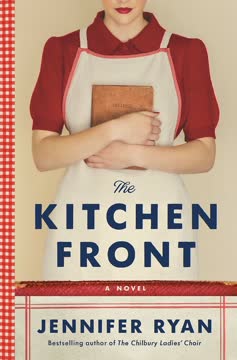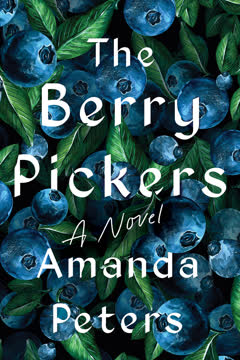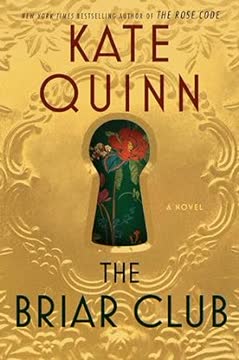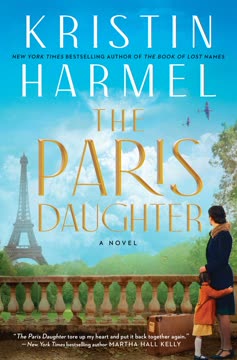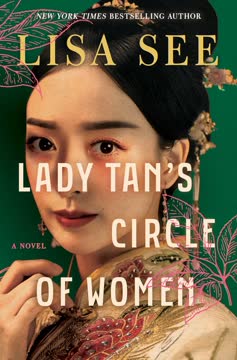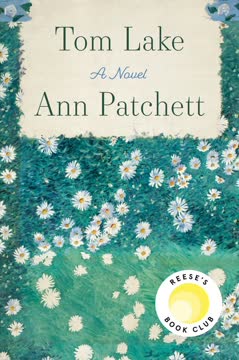Plot Summary
Audrey's Struggles and Resilience
In the midst of WWII, Audrey Landon, a widow in the village of Fenley, battles to keep her family afloat after her husband Matthew's death. With three boys and a deteriorating estate, Audrey's life is a constant struggle. She finds solace in her kitchen, transforming meager rations into meals that sustain her family. The announcement of a cooking contest offers a glimmer of hope, promising a chance to co-host a BBC radio program. This opportunity becomes a beacon for Audrey, representing a potential escape from her financial woes and a tribute to her late husband.
Gwendoline's Ambitions and Rivalry
Lady Gwendoline Strickland, Audrey's sister, is driven by ambition and a desire for social standing. Living in luxury at Fenley Hall, she sees the cooking contest as a path to fame and a way to outshine Audrey. Her life, though filled with material wealth, lacks warmth and fulfillment. Gwendoline's rivalry with Audrey is fueled by a lifelong sense of inadequacy. She enlists a professional chef to secure victory, hoping to cement her status as a culinary expert and prove her worth.
Nell's Aspirations and Challenges
Nell Brown, a shy kitchen maid at Fenley Hall, enters the cooking contest with her mentor, Mrs. Quince. Despite her insecurities, Nell is a talented cook with a keen sense of flavor. The contest offers her a chance to escape the confines of service and find her voice. Her journey is fraught with challenges, including Mrs. Quince's sudden illness, forcing Nell to run the kitchen alone. Nell's story is one of growth and self-discovery, as she learns to stand on her own and pursue her dreams.
Zelda's Secrets and Determination
Zelda Dupont, a glamorous and ambitious chef, is new to the village and determined to win the contest. Behind her confident exterior lies a secret: she is pregnant and plans to give the baby up for adoption. Zelda's past is marked by hardship and a failed romance with a London chef. The contest represents a fresh start, a chance to prove her culinary prowess and secure a future in the male-dominated world of haute cuisine. Her journey is one of resilience and reinvention, as she navigates the challenges of wartime Britain and her own personal struggles.
The Contest Begins: Culinary Showdown
The cooking contest kicks off with a display of creativity and skill. Each contestant presents a dish that reflects their unique style and background. Audrey's wild mushroom soup, Gwendoline's sardine rolls, Nell's hare with elderberry sauce, and Zelda's Coquilles St. Jacques showcase their culinary talents. The event is a microcosm of their personal battles and aspirations. As the judges deliberate, the tension is palpable, with each woman hoping for victory. The contest is more than a competition; it's a chance for redemption, recognition, and a new beginning.
Gwendoline's Unexpected Connection and Conflict
Lady Gwendoline Strickland, driven by ambition, collaborates with Chef James for the contest. Their professional relationship takes a personal turn, revealing Gwendoline's vulnerability and desire for affection. However, her abusive husband, Sir Strickland, looms large, threatening her newfound connection. Gwendoline's internal conflict between societal expectations and personal happiness highlights the complexities of her life, as she grapples with loyalty, love, and self-worth.
Audrey's Memorial and Family Reconciliation
Audrey Landon, a widow, faces her husband's memorial with a heavy heart. The service becomes a turning point, as her estranged sister, Gwendoline, offers unexpected support. Their shared grief bridges years of rivalry, leading to a heartfelt reconciliation. Audrey's journey through loss and resilience underscores the power of family and forgiveness, as she finds strength in her sister's unexpected kindness and support.
Nell's Romantic Encounter and Revelation
Nell Brown, a shy kitchen maid, secretly meets Paolo, an Italian POW, in the woods. Their connection blossoms into romance, offering Nell a glimpse of love and independence. However, their relationship is fraught with danger, as wartime restrictions threaten their future. Nell's encounter with Paolo reveals her longing for freedom and self-discovery, as she navigates the complexities of love and societal constraints.
Zelda's Decision and New Beginnings
Zelda faces a life-changing decision as she contemplates giving up her baby for adoption. Despite societal pressures and her own fears, Zelda ultimately chooses to keep her child, embracing motherhood and the support of her newfound friends. Her decision marks a turning point, symbolizing hope and new beginnings. Zelda's journey highlights the transformative power of love and friendship, as she redefines her identity and future.
The Contest's Climax and Aftermath
The cooking contest reaches its climax, with each contestant presenting their final dish. Zelda's croquembouche dazzles the judges, but it's Nell's summer pudding that wins the competition. The contest's outcome cements the women's bond, as they celebrate their achievements and plan for the future. The event underscores themes of resilience, creativity, and camaraderie, as the women navigate personal and societal challenges to forge new paths.
Characters
Audrey Landon
Audrey is a determined and resourceful woman, juggling the demands of motherhood and financial hardship. Her love for her late husband, Matthew, fuels her drive to succeed in the cooking contest. Despite her struggles, Audrey remains hopeful, finding strength in her family and her passion for cooking. Her journey is one of resilience, as she navigates the challenges of wartime Britain and seeks a brighter future for her children.
Lady Gwendoline Strickland
Gwendoline is Audrey's younger sister, living in luxury at Fenley Hall. Her marriage to Sir Strickland provides her with status, but she is haunted by a sense of inadequacy. The cooking contest is her chance to prove herself and outshine Audrey. Gwendoline's ambition is both her strength and her weakness, driving her to seek victory at any cost. Her story is one of ambition, rivalry, and the pursuit of recognition.
Nell Brown
Nell is a talented but timid kitchen maid at Fenley Hall. The cooking contest offers her a chance to escape the confines of service and find her voice. Her journey is one of self-discovery, as she learns to stand on her own and pursue her dreams. Nell's story is a testament to the power of perseverance and the courage to embrace change.
Zelda Dupont
Zelda is a talented chef who initially hides her pregnancy to compete in a cooking contest. Her journey from secrecy to acceptance highlights her resilience and growth. Choosing to keep her baby, Zelda finds strength in friendship and motherhood, redefining her identity and future. Her story underscores the transformative power of love and support in overcoming societal expectations.
Matthew Landon
Matthew is Audrey's late husband, whose memory looms large in her life. His death in the war leaves a void that Audrey struggles to fill. Matthew's love for Audrey and their family is a source of strength for her, inspiring her to persevere in the face of adversity. His presence is felt throughout the story, a reminder of the sacrifices made during wartime.
Chef James
Chef James is a charismatic figure who becomes entangled with Gwendoline, offering her a glimpse of affection and connection. His presence complicates Gwendoline's life, highlighting her internal conflict between societal expectations and personal happiness. Chef James's role underscores themes of love, loyalty, and the complexities of human relationships.
Plot Devices
Cooking Contest
The cooking contest serves as a central plot device, driving character development and interpersonal dynamics. It offers the women a platform to showcase their skills and navigate personal challenges. The contest symbolizes resilience, creativity, and the pursuit of new beginnings, as the characters confront societal expectations and forge new paths.
Wartime Rationing
Wartime rationing influences the characters' lives and choices, driving them to find creative solutions in the kitchen. The scarcity of ingredients challenges their culinary skills and resourcefulness, highlighting the resilience and ingenuity required to thrive in difficult times. Rationing serves as a metaphor for the broader challenges of wartime, underscoring the characters' determination to overcome adversity.
Analysis
"The Kitchen Front" by Jennifer Ryan is a poignant exploration of resilience, transformation, and the power of community in the face of adversity. Set against the backdrop of WWII, the novel delves into the lives of four women, each grappling with personal and societal challenges. Through the lens of a cooking contest, the story highlights themes of creativity, perseverance, and the pursuit of new beginnings. The characters' journeys underscore the transformative power of love, friendship, and family, as they navigate the complexities of wartime Britain. Ryan's narrative serves as a testament to the strength of the human spirit, offering a timeless message of hope and resilience.
Last updated:
FAQ
Synopsis & Basic Details
What is The Kitchen Front about?
- Wartime Culinary Competition: The Kitchen Front follows four diverse women—Audrey, Gwendoline, Nell, and Zelda—who enter a BBC radio cooking contest during World War II, each seeking to win a co-presenter role on the popular show. The competition serves as a backdrop for their individual struggles with loss, ambition, social standing, and personal secrets amidst the challenges of wartime rationing.
- Intertwined Fates: The narrative weaves together the lives of a grieving widow, a status-driven socialite, a shy kitchen maid, and a glamorous chef, revealing their hidden motivations and evolving relationships. Their paths converge in unexpected ways, forcing them to confront their pasts and redefine their futures, ultimately forming an unlikely bond of friendship and mutual support.
- Home Front Resilience: Set in rural England, the novel vividly portrays the ingenuity and resilience of women on the home front, who transform meager rations into nourishing meals. It explores how food, cooking, and community become central to survival and morale during a period of immense hardship and uncertainty.
Why should I read The Kitchen Front?
- Deep Emotional Resonance: Readers should delve into The Kitchen Front for its rich emotional landscape, offering a poignant look at how individuals cope with grief, ambition, and societal pressures during wartime. The novel excels at portraying the internal lives of its characters, making their struggles and triumphs deeply relatable.
- Historical Immersion & Culinary Creativity: The book provides a fascinating glimpse into daily life in WWII Britain, particularly the challenges and innovations of wartime cooking and rationing. It's a treat for historical fiction enthusiasts and food lovers alike, showcasing ingenious recipes and the vital role of food in maintaining morale.
- Empowering Female Narratives: At its heart, the story is a celebration of female strength, resilience, and the power of solidarity. It explores how women, often overlooked or underestimated, find their voices and forge new paths, challenging traditional roles and expectations in a world turned upside down.
What is the background of The Kitchen Front?
- WWII British Home Front: The novel is set in England during World War II, specifically in 1942, a period marked by severe food rationing, air raids (the Blitz), and the conscription of women for war work. This historical context is crucial, as it dictates the scarcity of ingredients, the need for culinary innovation, and the pervasive sense of uncertainty and loss.
- Ministry of Food & Propaganda: The BBC radio program "The Kitchen Front" and the Ministry of Food are central to the story's historical authenticity. The Ministry actively promoted resourceful cooking and anti-waste campaigns, using figures like Lord Woolton and programs like Ambrose Hart's to educate housewives. The contest itself reflects the era's popular morale-boosting competitions.
- Social Class & Gender Roles: The narrative subtly explores the rigid social hierarchies of the time, from the aristocratic Lady Gwendoline to the orphaned kitchen maid Nell, and how the war begins to blur these lines. It also highlights the prevailing gender roles, where women were primarily seen as homemakers, even as they took on vital roles in the war effort and challenged male-dominated professions like haute cuisine.
What are the most memorable quotes in The Kitchen Front?
- "Winning the war isn't only about young men fighting on the front line. It's about the home front, too, and how we can stay strong for them through all the shortages and rationing.": Lady Gwendoline's declaration encapsulates the novel's central theme of the home front's vital role in the war effort, highlighting how domestic tasks like cooking became acts of patriotism and resilience. This quote, from her cooking demonstration, underscores the collective spirit and sacrifice demanded of civilians.
- "You only get one life, Nell, and winning this contest might be your one chance for freedom. Nothing will change until you believe in yourself.": Mrs. Quince's powerful advice to Nell is a pivotal moment, urging her protégé to overcome her shyness and seize the opportunity for independence. It speaks to the broader theme of self-empowerment and the courage required to break free from societal constraints and personal fears.
- "This restaurant isn't just a business with four talented women cooks. It is the passion of four very special friends, joined first by necessity and now by kinship and love.": Audrey's toast at the opening of "The Four Friends" restaurant beautifully summarizes the transformative journey of the main characters. It emphasizes that beyond individual ambition and wartime necessity, their enduring bond of friendship and shared purpose is their greatest achievement.
What writing style, narrative choices, and literary techniques does Jennifer Ryan use?
- Alternating First-Person Perspective: Ryan employs a rotating first-person narrative, dedicating chapters to each of the four main women. This choice allows for deep dives into their individual psychologies, motivations, and secrets, providing a multi-faceted view of the story's events and enriching the reader's understanding of their interconnected lives.
- Sensory-Rich Descriptions: The author uses vivid, sensory language, particularly in descriptions of food and cooking, to immerse the reader in the wartime setting. The aromas, textures, and tastes of the dishes, often made from scarce ingredients, evoke both the hardship and the ingenuity of the era, making the culinary aspects a central, almost tangible, element of the narrative.
- Symbolism and Foreshadowing: Ryan subtly integrates symbolism, such as the beehive representing community and resilience, or the dilapidated Willow Lodge mirroring Audrey's initial state of grief. Foreshadowing is also used effectively, with seemingly minor details or character interactions hinting at future plot developments, adding layers of depth and anticipation to the story.
Hidden Details & Subtle Connections
What are some minor details that add significant meaning?
- Gertrude the Hen's Character Arc: Audrey's hen, Gertrude, initially described as tyrannical and unproductive ("never laid an egg in her life"), becomes a symbol of Audrey's internal conflict and eventual transformation. The moment Audrey almost kills Gertrude for the contest, only to be stopped by Zelda, highlights Audrey's inherent kindness and her struggle to become "tougher" in wartime, ultimately reaffirming her nurturing nature.
- The Significance of Matthew's Belongings: The return of Matthew's personal effects—his wallet, Audrey's ribbon, his copper disk—is more than just confirmation of his death. The ribbon, worn by Audrey when they first met and kept by Matthew, symbolizes their enduring love and the preciousness of memory. Its frayed state hints at the passage of time and the weariness of war, while its return allows Audrey a tangible connection to her past, enabling her to finally grieve and move forward.
- Ambrose Hart's Hidden Vulnerability: Despite his pompous, self-important public persona, Ambrose Hart occasionally reveals glimpses of insecurity and a desire for genuine connection. His initial reluctance to host the contest, his fear of Zelda's outspokenness, and his later willingness to help Nell with elocution lessons suggest a man who, beneath the BBC facade, is more complex and perhaps lonelier than he appears, subtly mirroring the hidden struggles of the women.
What are some subtle foreshadowing and callbacks?
- Gwendoline's Childhood Jealousy: Early mentions of Gwendoline's childhood jealousy over Audrey's favored status with their mother, and her spiteful acts like swapping sugar for salt in cakes, subtly foreshadow her later attempts to undermine Audrey in the cooking contest and her deep-seated insecurities that drive her ambition. This long-standing sibling rivalry is a recurring motif that explains much of her adult behavior.
- Mrs. Quince's Declining Health: Mrs. Quince's frequent sighs, her "lilt to her walk," and her need to "take a few breaths" before her collapse are subtle hints of her deteriorating health. These details, initially presented as minor ailments of old age, foreshadow her eventual hospitalization and death, making her passing impactful but not entirely unexpected, and setting the stage for Nell's growth.
- Zelda's Cockney Accent: Zelda's occasional slip into her "guttural cockney" accent, despite her efforts to cultivate an upper-class English and French-tinged voice, foreshadows her eventual shedding of pretenses and acceptance of her true self. It's a subtle indicator of her working-class origins and her determination to rise above them, revealing the deep-seated insecurities she tries to mask.
What are some unexpected character connections?
- Zelda and Audrey's Shared Vulnerability: The most unexpected connection is between Zelda and Audrey, initially competitors and then reluctant housemates. Their shared experiences of loss (Audrey's husband, Zelda's failed romance) and the challenges of single motherhood (Audrey's widowhood, Zelda's illegitimate pregnancy) forge a bond that transcends their differences. Audrey's compassion for Zelda's situation, particularly her decision to keep the baby, highlights a deep, unspoken understanding between them.
- Nell and Paolo's Cultural Bridge: Nell, the shy English kitchen maid, and Paolo, the Italian POW, form an unlikely romantic connection that defies wartime animosity. Their shared passion for cooking and nature, despite language and cultural barriers, creates a tender bond. Paolo's gentle encouragement helps Nell find her voice and confidence, demonstrating how human connection can transcend political divides.
- Gwendoline and Mrs. Quince's Mutual Respect: Despite their differing social statuses and Gwendoline's initial attempts to manipulate Mrs. Quince, a subtle mutual respect develops. Mrs. Quince's quiet defiance and Gwendoline's eventual realization of her cook's integrity, particularly when Mrs. Quince reveals her job offer from Rathdown Palace, show a deeper understanding forming between them, challenging the traditional master-servant dynamic.
Who are the most significant supporting characters?
- Mrs. Quince, the Culinary Matriarch: Mrs. Quince is Nell's mentor and a foundational figure for the entire culinary community. Her wisdom, kindness, and deep knowledge of traditional cooking not only shape Nell's skills but also represent a link to a bygone era of culinary excellence. Her passing is a major emotional turning point, catalyzing Nell's independence and inspiring the "Four Friends" to honor her legacy.
- Paolo, the Unexpected Romantic Lead: Paolo, the Italian POW, is crucial for Nell's personal and culinary development. He introduces her to Italian cuisine, broadens her horizons, and, most importantly, helps her overcome her shyness and embrace her self-worth. His presence symbolizes hope, cross-cultural connection, and the possibility of love amidst conflict, profoundly impacting Nell's journey.
- Ambrose Hart, the Catalyst and Judge: Ambrose Hart, the BBC presenter, serves as the primary catalyst for the entire cooking contest. His role as judge and his public persona drive much of the plot, but his subtle interactions with the women reveal his own complexities. He inadvertently pushes the women to excel and, in the end, becomes an advocate for their restaurant, demonstrating his influence beyond the competition itself.
Psychological, Emotional, & Relational Analysis
What are some unspoken motivations of the characters?
- Audrey's Quest for Validation: Beyond financial stability, Audrey's deep-seated motivation to win the contest is a yearning for validation and a way to honor her late husband, Matthew. Her cooking, which Matthew "always adored," becomes a tangible link to his memory and a means to prove her worth in a world where she feels adrift. This unspoken desire for Matthew's pride drives her resilience.
- Gwendoline's Pursuit of Self-Worth: Gwendoline's relentless ambition and desire for social status are rooted in a profound lack of self-worth, stemming from her mother's favoritism towards Audrey and her own feeling of being the "unwanted girl." Her drive to win the contest and her marriage to Sir Strickland are desperate attempts to prove her value, not just to society, but to the ghost of her mother's disapproval.
- Zelda's Fear of Vulnerability: Zelda's initial plan to give up her baby for adoption, her guardedness, and her cultivated persona are driven by a deep-seated fear of vulnerability and a traumatic childhood. Having been abandoned and forced to fend for herself, she equates emotional connection and family with weakness and hardship, subconsciously believing that a child would hinder her hard-won independence and career.
What psychological complexities do the characters exhibit?
- Audrey's Grief and Guilt: Audrey exhibits complex grief, initially clinging to the hope of Matthew's survival and later struggling with the finality of his death. Her reliance on Alexander and her initial inability to kill Gertrude the hen reveal a deep-seated aversion to causing harm, contrasting with the harsh realities of wartime. Her journey is a psychological unraveling and rebuilding, as she learns to accept help and find joy amidst her sorrow.
- Gwendoline's Identity Crisis: Gwendoline grapples with a severe identity crisis, torn between the "Lady Gwendoline" persona she meticulously crafted for societal acceptance and the vulnerable, unloved girl beneath. Her abusive marriage to Sir Strickland, which she endured for status, highlights her internal conflict. Her eventual decision to leave him and embrace her sister's friendship marks a significant psychological shift towards authenticity and self-acceptance.
- Nell's Overcoming of Trauma: Nell's extreme shyness and stammering are psychological manifestations of her traumatic upbringing in an orphanage, where she learned to be "invisible." Her journey involves confronting this deep-seated fear of self-expression. Her connection with Paolo and the encouragement from Mrs. Quince gradually empower her to find her voice, both in cooking and in speaking up for herself, demonstrating profound psychological growth.
What are the major emotional turning points?
- Audrey's Acceptance of Matthew's Death: The telegram confirming Matthew's body's identification is a major emotional turning point for Audrey. It shatters her lingering hope, forcing her to confront the finality of his loss. This moment of profound grief, however, also liberates her to fully embrace her present and future, leading to a deeper connection with her sons and a renewed determination in the contest.
- Gwendoline's Confrontation with Sir Strickland: The violent confrontation with Sir Strickland, where he physically abuses her and threatens her reputation, is a critical emotional turning point for Gwendoline. It forces her to acknowledge the true nature of her marriage and the personal cost of her ambition. This trauma, witnessed by Nell, propels her to leave her husband and seek refuge with Audrey, initiating her path to genuine connection and self-respect.
- Zelda's Decision to Keep Her Baby: The moment Zelda holds her newborn daughter, Madeleine, and decides to keep her, is the most significant emotional turning point for her. Despite her long-held plans for adoption and her fear of motherhood, the immediate, visceral connection with her child overrides her past trauma and ambition. This decision signifies her embrace of vulnerability, love, and the formation of a new, unconventional family.
How do relationship dynamics evolve?
- Sisters' Reconciliation: The relationship between Audrey and Gwendoline transforms from deep-seated rivalry and resentment, fueled by childhood favoritism and Gwendoline's patronizing behavior, into a bond of mutual support and sisterly love. Matthew's memorial service and Gwendoline's escape from her abusive husband are catalysts, forcing them to confront their past hurts and recognize their shared need for family.
- Nell's Empowerment through Love and Mentorship: Nell's relationship with Mrs. Quince evolves from a traditional maid-cook dynamic into a profound mentorship and surrogate mother-daughter bond. Simultaneously, her romance with Paolo empowers her to overcome her shyness and embrace her identity. These relationships collectively build her confidence, enabling her to step into her own as a talented chef and a self-assured woman.
- Zelda's Journey to Found Family: Zelda's relationships evolve from guarded independence to a reluctant, then full, embrace of a "found family" with Audrey, Nell, and Gwendoline. Her initial distrust and self-serving motives gradually give way to genuine friendship and interdependence, culminating in her decision to keep her baby and raise her within this supportive community, redefining her understanding of family.
Interpretation & Debate
Which parts of the story remain ambiguous or open-ended?
- The Future of Paolo and Nell's Relationship: While Nell and Paolo share a deep connection and plan to continue meeting, the long-term viability of their relationship remains open-ended. Paolo is an Italian POW, and the war's uncertain duration, his eventual repatriation, and the societal challenges of an English maid marrying a former enemy soldier leave their future together ambiguous.
- The Long-Term Success of The Four Friends Restaurant: The novel concludes with the triumphant opening of "The Four Friends" restaurant, but its sustained success in post-war Britain is left to the reader's imagination. While the initial reception is positive and the women are united, the economic realities of the post-war era and the challenges of running a business are not fully explored, leaving room for debate about their future prosperity.
- Sir Strickland's Ultimate Fate: Although Sir Strickland is arrested and faces trial for embezzlement and black-market activities, the specific outcome of his legal proceedings and his ultimate fate are not explicitly detailed. The narrative implies he will be imprisoned, but the extent of his punishment and its lasting impact on Gwendoline's freedom and financial independence are left somewhat open to interpretation.
What are some debatable, controversial scenes or moments in The Kitchen Front?
- Gwendoline's Initial Treatment of Audrey: Gwendoline's consistently cruel and patronizing behavior towards Audrey, particularly her calling in the loan and forcing an evacuee on her, is a controversial aspect. Readers might debate whether her eventual redemption is fully earned, given the depth of her past malice and the suffering she inflicted on her sister.
- Zelda's Plan for Baby Adoption: Zelda's unwavering intention to give her baby up for adoption, even after forming bonds with the other women, can be a controversial point. While her reasons stem from a traumatic past and a desire for career independence, some readers might find her initial detachment from her unborn child difficult to reconcile, sparking discussions about maternal instinct versus personal ambition.
- Sir Strickland's Abuse and Gwendoline's Complicity: The revelation of Sir Strickland's physical and emotional abuse of Gwendoline, and her long-term endurance of it for social status, is a dark and controversial element. It raises questions about complicity, the societal pressures on women in abusive relationships, and whether Gwendoline's eventual escape and exposure of his crimes fully absolves her of her earlier silence.
The Kitchen Front Ending Explained: How It Ends & What It Means
- Triumph of Friendship and Found Family: The ending of The Kitchen Front culminates in the four women—Audrey, Gwendoline, Nell, and Zelda—forming a successful restaurant called "The Four Friends." Nell wins the BBC cooking contest, becoming a radio presenter, but chooses to stay in Fenley. Zelda decides to keep her baby, Madeleine, embracing motherhood within their supportive community. Gwendoline leaves her abusive husband, Sir Strickland, who is arrested due to the women's collective evidence, and becomes the business manager of the restaurant. Audrey's home, Willow Lodge, is secured debt-free.
- Redefining Success and Happiness: The ending signifies a profound redefinition of success for each woman. For Nell, it's finding her voice and a loving community beyond servitude. For Zelda, it's embracing motherhood and genuine connection over solitary ambition. For Gwendoline, it's achieving true independence and self-worth, free from her husband's control and her mother's judgment. For Audrey, it's finding peace, healing from grief, and building a new, expanded family. Their collective success in the restaurant, born out of wartime necessity, symbolizes that true fulfillment comes from community, love, and shared purpose, not just individual achievement or material wealth.
- Hope for a New Era: The establishment of "The Four Friends" restaurant, specializing in wartime cuisine, represents hope for a new era where women can forge their own paths, combining career and family in unconventional ways. The restaurant becomes a symbol of resilience, creativity, and female empowerment, demonstrating that even amidst the devastation of war, new beginnings and lasting bonds can flourish. The final image of the four women, arms linked, laughing behind the croquembouche, encapsulates their journey from isolated struggles to a powerful, united front.
Review Summary
The Kitchen Front is a heartwarming historical fiction set in WWII England, following four women competing in a cooking contest for a BBC radio show. While praised for its depiction of wartime rationing and female resilience, some readers found the characters underdeveloped and the plot predictable. Many appreciated the included recipes and historical details. Overall, it's considered an uplifting, feel-good story that highlights the strength of women during difficult times, though opinions vary on its depth and realism.
Similar Books
Download PDF
Download EPUB
.epub digital book format is ideal for reading ebooks on phones, tablets, and e-readers.
